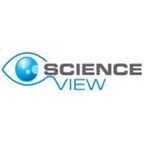Dear Colleagues,
We are proud and honored to announce the First International Conference on “New Developments in Science and Technology Education” that will be held in Corfu Island, Greece, from Thursday, May 29th, to Saturday, May 31st, 2014.
Science and technology education research, influenced by constructivist thinking, not only concentrates on the teaching of science concepts and addressing misconceptions that learners may hold, but also emphasizes how students learn and tries to find out ways to achieve better learning. New developments in science and technology education rely on a wide variety of methods, borrowed from many other sciences such as computer science, cognitive science, sociology and neurosciences.
A lot of studies indicate that students who use new technologies, enlightened by new developments in science education, not only get better grades on exams, but also demonstrate better understanding. Constructing and using scientific conceptual models are also necessary in order to reach high levels of scientific literacy. Therefore, it is important for science courses to be designed in ways that support and help students understand the pivotal role of models in scientific episteme and of modeling in scientific inquiry.
The conference will be structured around (but not limited to) five main thematic axes such as:
The conference has two objectives. The first objective is the sharing of new practices within the area of research in science and technology education. The second objective is to provide international researchers a significant and friendly opportunity to network and collaborate so as to improve ideas and processes.
The organizers,
Professor Martin Riopel
Assistant Professor Zacharoula Smyrnaiou
We are proud and honored to announce the First International Conference on “New Developments in Science and Technology Education” that will be held in Corfu Island, Greece, from Thursday, May 29th, to Saturday, May 31st, 2014.
Science and technology education research, influenced by constructivist thinking, not only concentrates on the teaching of science concepts and addressing misconceptions that learners may hold, but also emphasizes how students learn and tries to find out ways to achieve better learning. New developments in science and technology education rely on a wide variety of methods, borrowed from many other sciences such as computer science, cognitive science, sociology and neurosciences.
A lot of studies indicate that students who use new technologies, enlightened by new developments in science education, not only get better grades on exams, but also demonstrate better understanding. Constructing and using scientific conceptual models are also necessary in order to reach high levels of scientific literacy. Therefore, it is important for science courses to be designed in ways that support and help students understand the pivotal role of models in scientific episteme and of modeling in scientific inquiry.
The conference will be structured around (but not limited to) five main thematic axes such as:
- Modern Pedagogies and New Technologies in Science and Technology Education
- Interest, Attitude and Motivation in Science and Technology Education
- Neuroscience and Science Education
- Assessment in Science and Technology Education
- Teaching and Learning in Specific Disciplines
The conference has two objectives. The first objective is the sharing of new practices within the area of research in science and technology education. The second objective is to provide international researchers a significant and friendly opportunity to network and collaborate so as to improve ideas and processes.
The organizers,
Professor Martin Riopel
Assistant Professor Zacharoula Smyrnaiou
Organizers
Co-Organizers - Supporting Partners
The conference will be held under the auspices of the Ministry of Education & Religious Affairs & the Regional Directorate of Primary and Secondary Education of Ionian Islands







